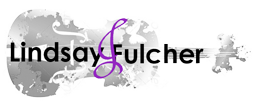Photo Credit: Photography class students
I believe that all students can learn music and be musical. They learn at different rates, are musical in different ways, and challenge me as a teacher by their uniqueness. But I believe that every student has the ability to experience growth and musicality in my classroom, rehearsals, and ensembles. I strive to help students become independent musicians and thinkers. I always told my high school students, “it’s my goal to work myself out of a job – I don’t want you to need me anymore.” Students should see value in the creative process and feel pride in their products. One of my goals is that they will respect and listen to music for the rest of their lives. Music is something intrinsic that each student can appreciate on a personal level, without a teacher’s mandate. In any music class they should develop the tools to be better, more effective, more precise, more emotional musicians. But they should take those tools and continue to grow, not be tethered to the teacher for confidence.
To help my students grow I ask a lot of questions. I ask questions of my music education students, encouraging each student to respond. I also ask questions of my private lesson students. I get the sense that this is new for many of them. After nearly every “performance” I ask the student how she feels about how she played, what she did really well, and what goals she thinks we should set. I believe it is very important for all students, elementary school through college, to evaluate themselves and think about what they share with the world. Whether they are sharing a musical performance, a blog post, or a term paper they should work hard to prepare their contribution and then evaluate it and reflect on it as well. Similarly, I facilitate or mentor at least as much as I lecture or demonstrate. I think there is great benefit to letting students teach each other or explore and discover on their own. As a facilitator I can set them on a path and guide them through an activity or learning opportunity, but the detailed learning can often be accomplished, or at least started, without direct instruction from me. This is particularly relevant in my lessons using technology. I often have students in small groups explore new technological resources and ideas. Every time I come away thinking “they discovered more and taught each other more than I ever could have taught them through lecture.”
There are a number of factors I consider when evaluating my effectiveness as a teacher. I first consider the input of my students. At the college-level it is typical for students to complete formal evaluations. At the K-12 level I often gave my students “exit slips” that said, “Please list one thing Mrs. Fulcher did today that was helpful to you and one thing you wish she had handled differently.” I continually work to keep student input in perspective, but I do think it is very valuable. I also consider the input of my mentors, co-teachers, and superiors. A casual conversation with a mentor who watched me teach has been just as helpful, if not more so, than a formal evaluation from a superior. When considering my effectiveness as a teacher I think it is most important to always be evaluating. Just as I ask my students to answer questions and reflect constantly, I must do the same.
I am a teacher. At a young age I found joy in helping my Barbie Dolls learn multiplication. I was brought to tears by the music my high school students and I made together. And I am inspired and encouraged when I watch a student teacher, with whom I have worked, succeed in helping his students create music. I am a teacher because I love learning and I love helping others grow and experience success.

